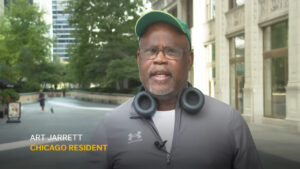Chicago Residents Push Back Against Federal Troop Deployment Threats Amid Crime Concerns
Community Voices Challenge Negative Portrayals of Chicago
President Donald TrumpŌĆÖs recent declaration to deploy National Guard forces to Chicago ignited a wave of backlash from locals who reject his severe characterization of the city as a ŌĆ£killing field.ŌĆØ This rhetoric has intensified debates surrounding public safety in AmericaŌĆÖs third-largest metropolis, where residents emphasize a more nuanced reality.
Longtime Locals Affirm ChicagoŌĆÖs Safety and Resilience
Having called Chicago home for nearly six decades, many residents express confidence in the cityŌĆÖs safety. One longtime inhabitant shared, ŌĆ£After 57 years here, I feel secure. Chicago is a community where I can live comfortably. IŌĆÖve traveled extensively and visited places with far worse drug problems than Chicago.ŌĆØ Such perspectives highlight the disconnect between sensationalized media narratives and everyday experiences.
Crime Trends Show Significant Improvement
Recent statistics reveal encouraging progress in ChicagoŌĆÖs fight against violent crime. Over the past year, the United States has experienced a 20% reduction in homicides, while ChicagoŌĆÖs decline stands even more impressive at 30%. These figures suggest that the city is outperforming national averages in key safety metrics, challenging the notion that drastic federal intervention is warranted.
Federal Intervention: Unnecessary and Potentially Misguided
Many locals argue that deploying troops is an excessive response. ŌĆ£If the situation were truly dire, things would look very different here,ŌĆØ one resident noted. The sentiment is that federal authorities should support rather than intimidate communities, emphasizing collaboration over confrontation. The presence of federal forces should not be perceived as a threat but as a resourceŌĆöif truly needed.
Criticism of Political Motives Behind the Troop Threat
Critics also question the sincerity of the presidentŌĆÖs claims, pointing out contradictions such as the existence of Trump Tower in downtown Chicago. ŌĆ£If this city were genuinely a ŌĆśkilling field,ŌĆÖ why invest in a luxury building here?ŌĆØ one local remarked. Furthermore, there is skepticism that any troops sent would be stationed in affluent neighborhoods, rather than the areas most affected by crime, underscoring concerns about the political optics rather than practical solutions.
Looking Ahead: ChicagoŌĆÖs Path Forward
As Chicago continues to make strides in reducing violent crime, community leaders and residents alike advocate for policies grounded in data and local realities. Emphasizing investment in social programs, community policing, and economic development remains a priority to sustain and accelerate positive trends. The cityŌĆÖs experience serves as a reminder that complex urban challenges require thoughtful, evidence-based approaches rather than alarmist rhetoric.




